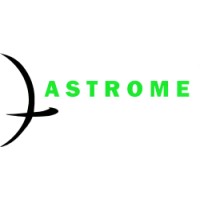By: Sanjana P. V.
India is growing and modernising by means of making significant advances in the space technology industry. With all of this innovation, they are gaining the attention of an increasing number of investors. The whole space expedition in India has been driven by ISRO, but the private sector has been cultivated to be a provider of components and sub-assemblies. With the Honourable Prime Minister’s historic statement in June 2020 to offer space to the private sector, this is now experiencing a fundamental change in perspective. Considering missions such as Mangalyan, SSLV, PSLV, Chandrayan, and others, India is focusing more on the Aerospace industry in order to be included among the top space tech nations in the world. A total of more than 100 active space startups are now operating, according to the Economic Survey of India, up from 1 in 2012. It is desirable to take a holistic approach on behalf of the entire government and have a single-minded focus on making this a success. This is our selection of the Top 10 Best Spacetech Startups in India to Watch in 2023.
Pixxel
Awais Ahmed and Kshitij Khandelwal launched Pixxel in 2019, and their company is focused on constructing a constellation of 24 to 30 tiny Earth-imaging satellites that would enable them to continuously and in real-time monitor the planet. By supplying real-time data and analytics, this technology is anticipated to change sectors including agriculture, mining, and urban planning. To help it achieve its major goals, Pixxel has also obtained sizeable financing from investors, such as Techstars and IvyCap Ventures. The firm mainly focuses on two things: creating the infrastructure and developing the technology needed to deploy a constellation of satellites.
Bellatrix Aerospace
Private Indian aircraft maker and small satellite business Bellatrix aircraft is based in Bangalore. Rohan Ganapathy, Nuthan Prasanna, and Yashas Karanam launched the business in 2015. The Chetak rocket from Bellatrix Aerospace was decided to be launched. The Bellatrix’s Aeon engines feed the two-stage rocket, which is fuelled by liquid methane. The business declared plans to use water as the fuel for an electric propulsion system in 2019. Bellatrix ceased production on their Chetak rocket on February 9, 2022, according to a tweet by Rohan. Bellatrix and Skyroot Aerospace made their collaboration official on February 8, 2021.
Astrome technology
In order to improve internet availability and affordability for individuals in developing nations, Neha Satak and Prasad HL Bhat launched Astrome Technologies. Their SpaceNet technology, which can tenfold each satellite’s data-carrying capacity and provide remote populations with internet speeds of up to 400 Mbps, aims to do this. This technology is intended to benefit everyone by bridging the digital divide and providing underserved communities with access to high-speed internet. Through their hardware innovation in phased array antennas and their software innovation in beam-forming and beam-steering, Astrome is continually developing the next generation of Millimeter-Wave Wireless solutions. In order to provide low-cost internet access, it has also made a debut with a local E-band radio.
Skyroot aerospace
Skyroot Aircraft is a private aircraft manufacturer and supplier of commercial launch services with its headquarters in Hyderabad, India. The business was started in 2018 by Pawan Kumar Chandana and Naga Bharath Daka, both of whom were engineers and scientists at ISRO. They design and manufacture rockets, propulsion systems, and satellite platforms for a range of applications. A variety of tiny launch vehicles that are specifically made for the market for small satellites will be developed and launched by the company. It is the first rocket launcher in the nation. On November 18, 2022, the company successfully introduced “Vikram 1”.
Agnikul Cosmos
AgniKul Cosmos, an Indian aerospace business, is situated at IIT Madras’ National Centre for Combustion R&D (NCRD). The company plans to create and launch its own small-lift rockets, such as the Agnibaan, which can deliver 100 kg of cargo into a 700 km-wide orbit. After the business constructed and launched its first rocket in 2021, it has started providing launch services for satellites weighing up to 100 kg. AgniKul and the Department of Space entered a framework agreement in September 2021 enabling AgniBaan, a two-stage small-satellite launch vehicle, to be developed with access to ISRO facilities and technological expertise.
Dhruva space
Dhruva Space is developing small satellites for the commercial, governmental, and academic industries. The company provides a full range of ground-based, orbital, and launch technical solutions. Dhruva Space Private Limited is a private aerospace company in Hyderabad, India. The company was established in 2012 by Sanjay Srikanth Nekkanti and provides whole space solutions for individuals and organisations that wish to put their own little satellites into orbit. They provide a variety of services, including ground station upkeep, sourcing launch providers, and designing and building unique satellites.
Vesta space technology
Vestaspace Technologies, situated in Pune, was founded by Arun Kumar Sureban in 2018. The company specialises in building tiny satellite systems for commercial and academic purposes. Vestaspace Technology also develops mission management and monitoring software, and the business has launched a constellation of nano-satellites into low-Earth orbit. The company offers skilled radio-based surveillance and communication services as well as wireless connection for Internet of Things applications. The company has a cooperation with ISRO and is creating audacious strategic goals for global expansion.
Satellize
Satellize, a firm that specialised in producing miniature satellites for customers, was founded in 2016 by Kris Nair and Ashhar Farhan. Being the first commercial firm in India to have a satellite in space, Satellize, then known as Exseed Space, achieved history. The fourth stage of the PSLV-C45 rocket from Satellize successfully launched AISAT, also known as ExseedSat-2. The company’s major focus is on the “assembly, integration, testing, and operation of satellites,” with its main purpose being “democratising space exploration.”
Teamindus
One of the earliest aerospace startups in India was TeamIndus, which was established by Rahul Narayan, Indranil Chakraborty, Sameer Joshi, Dilip Chabria, and Sheelika Ravishankar in 2010. The business was founded in order to win the 2007-announced Google X Lunar Prize. The Lunar X project awarded TeamIndus $1 million for successfully testing its landing technique. The company and the Indian Space Research Organisation (ISRO) entered into a commercial launch contract in December 2016 for their quest to land a spacecraft on the Moon.
Kawa space
Kawa Space, a company in space technology, is dedicated to creating critical infrastructure and software for space applications. The company was started by Kris Nair in 2018. For clients in a variety of industries, including agriculture, financial services, government, and risk management, it develops and runs sophisticated earth observation satellite constellations. The Kawa Platform, which is their primary product, is an intelligence platform that uses an API to provide geographic insights to IT teams all around the world. By developing space systems that are easy to deploy, they hope to reduce the need for major financial investments and lead time. It had sent one satellite into orbit in the year of its founding, and 18 more were in the works. Kawa Space wants to open up access to satellite imagery for everyone.
Conclusion
Space industry manufacturing is a difficult and complex process. Due to the high level of technology and accuracy involved, a significant amount of funds is required. The startup ecosystem in space is on the rise, with the first phase of businesses poised to become unicorns in the near future. A strong and positive government commitment, ISRO and IN-SPACe guidance, and mutual engagement of new and existing industry participants on the ISpA platform will undoubtedly lead to massive growth in the Indian space sector headed by our entrepreneurs.

















